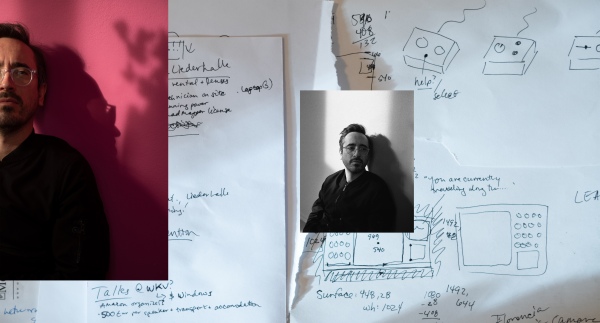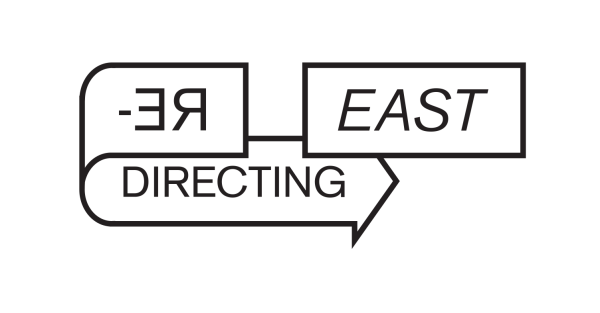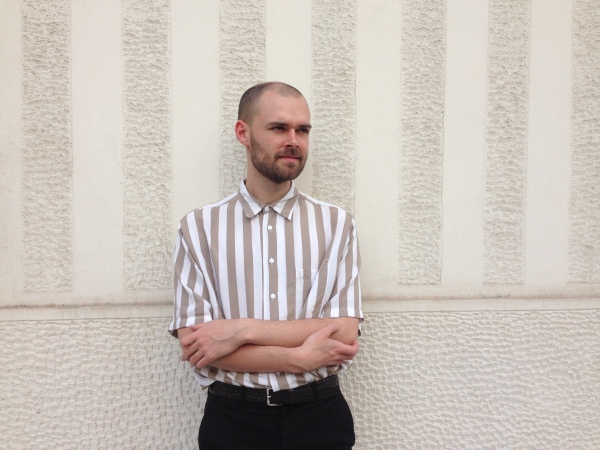Rado Ištok on Re–Directing: East 2019
-
Where do you come from and what did you bring with you to the Forum and the Re–Directing: East Seminar?
- Rado Ištok: I’m an independent curator, editor and researcher from Slovakia, and I’ve been based in Stockholm for the last five years. In Stockholm, together with artist Natália Rebelo and architect Marie-Louise Richards, I run a series of programmes called Spaces of Care, Disobedience and Desire, and in Slovakia I opened a group exhibition this Spring at tranzit.sk in Bratislava titled Liquid Horizons. The exhibition shows some of the issues that I find urgent, also in relation to my time in Warsaw, namely how to build alliances across different geographies. Making links and parallels between different places around the world while recognising their differences is something I find very important at a time when we are witnessing (not only in Eastern Europe) a dangerous and irresponsible isolationism as a response to overwhelming planetary challenges.
-
The Forum on the relations between Eastern Europe and the MENA region made me think about my own family history which reflects these relations. On the one hand, my grandfather worked in Libya in the 1970s, on the other, my parents studied at universities in the former Czechoslovakia in the 1980s, together with students from the so-called ‘Third World’. Still, in order to be honest with ourselves, I think it is important to debunk the myths that surround this exchange, which was part of the Cold War competition with the West by proxy, and was motivated not only ideologically in terms of solidarity but to a large extent economically, with Eastern European companies profiting from rhetoric of solidarity. Perhaps one important question is whether it is possible, given the conditions we live in, to build a cultural exchange today that does not follow economic interests.
-
-
What was your residency and seminar experience?
- I’m very glad I could participate in Re–Directing: East, especially in this year’s edition, co-organised with the Biennale Warszawa. For me, our conversations during the past four weeks have been extremely rewarding, and the group was very generous. I feel incredibly glad that I could be part of these conversations and contribute to them. It’s really difficult to evaluate the impact of these four weeks spent together in the long term, but I truly believe that the alliances formed during these weeks will bear their fruit in the future. The work that the U–jazdowski is doing in terms of the residencies, and the Biennale in terms of inviting various guests for the forums allows for many conversations to happen rather than just present existing work, and this is extremely important not only for Warsaw and Poland but for the region of Eastern Europe as well. I hope that the next stage of future collaborations will be able to incorporate a lot of the discussions which took place during the past weeks.
-
-
What will you take with you from the residency and the seminar?
- The residency and the seminar perhaps didn’t lead to clear strategic steps for establishing a trans-national institution, but they prepared a good ground for raising awareness about both the perils and the possibilities of future collaboration between Eastern Europe and different parts of the world, including the MENA countries. The meetings exposed the work, and the homework, we have to do in order not to fall into the same traps as many before us, who, despite their best intentions ended up replicating old colonial models of engagement with the world. I find it crucial that we match our eagerness of welcoming the world to Eastern Europe with care, responsibility and an understanding of what it takes for certain bodies to exist in certain spaces. A lot of identity politics and conversations about race in Eastern Europe still need to occur due to the historical conditions of the region. Although it is important that these conversations are homegrown, we don’t have the luxury to be starting from scratch in 2019 either. I think that active listening is the best way for us to prove that we are committed to building mutually beneficial relationships for the future.



